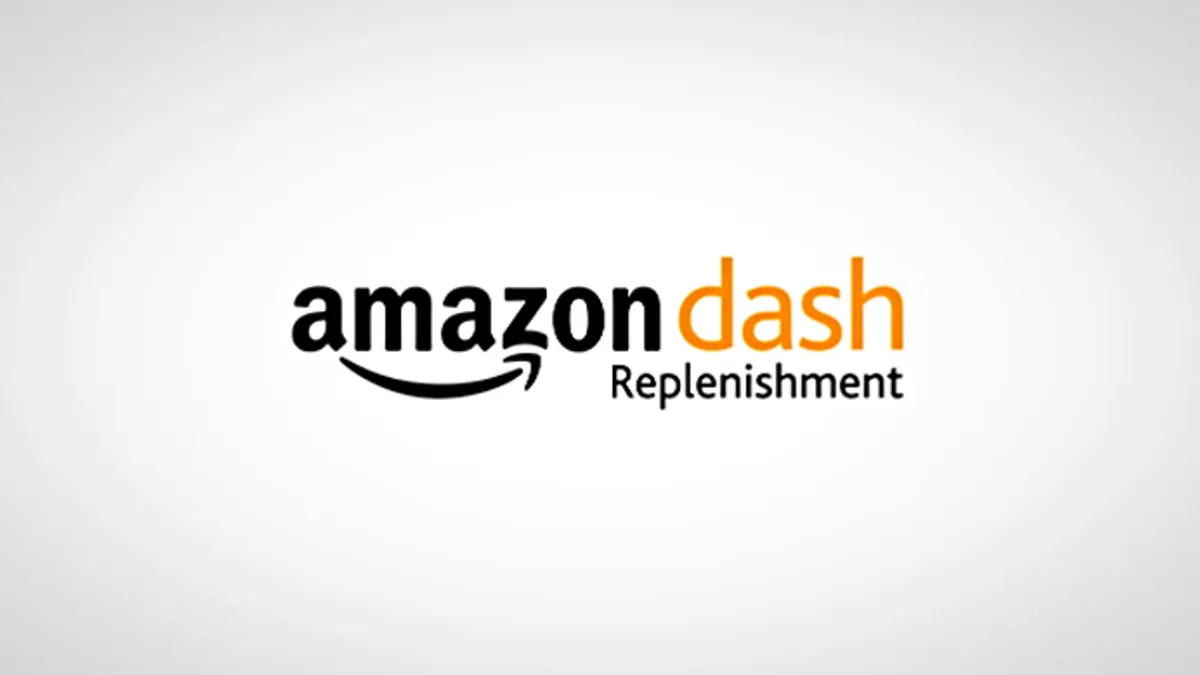Dive Brief:
- The first Amazon Dash appliances went live yesterday, with several others going live later this month, as Amazon aims to automatically replenish frequently-purchased supplies for consumers such as detergent, pet food and printer ink, TechCrunch reports.
- Select Brother printers, a GE washing machine and a blood glucose monitor are the first appliances to feature integrated Dash Replenishment programs, which will automate the replenishment of these supplies when they run low.
- Additional partners for Dash Replenishment named by Amazon include Whirlpool, Brita, Samsung and GOJO, the makers of Purell.
Dive Insight:
With the Dash Replenishment program now starting to go live, Amazon appears to be betting on the idea that it can bypass retailers of all kinds if they can eliminate the need for consumers to actively make necessary-yet-unexciting purchases. It's too early to tell if the program will be successful, but the concept has the potential to minimize — or even eliminate — the need for consumers to head to the store, or even go online, for common household items.
While consumers can already press an inexpensive stick-on Dash button to place orders for items such as paper towels or diapers with Amazon, the Brother printers will use an automated reordering system based on monitoring of toner and ink levels. When the ink drops to a certain level, printers will reorder from Amazon automatically.
With the Amazon API out of beta, more Dash applications may soon be on the way. Brita, Oster and Samsung are among the brands already mentioned as Dash partners. Whirlpool is set to produce washers, dryers and dishwashers with Dash Replenishment, while Purell hand-sanitizer dispensers will soon be replenished via Dash.
Dash Replenishment is Amazon’s latest effort to be the just-in-time supplier of all kinds of consumer inventory. The convenience may be substantial for users who deplete such supplies day in and day out, but it remains to be seen just how much automation—and granularity—people need in sourcing necessities.
If it does see sustained success, the program could impact sales at retailers stocking household products. Brick-and-mortar stores may need to offer greater value for consumers to visit their locations for these essential household goods — think bigger discounts, deeper loyalty programs, and a unique, customer-centric experience — but even that may not be enough, given the incredible convenience of this concept.















